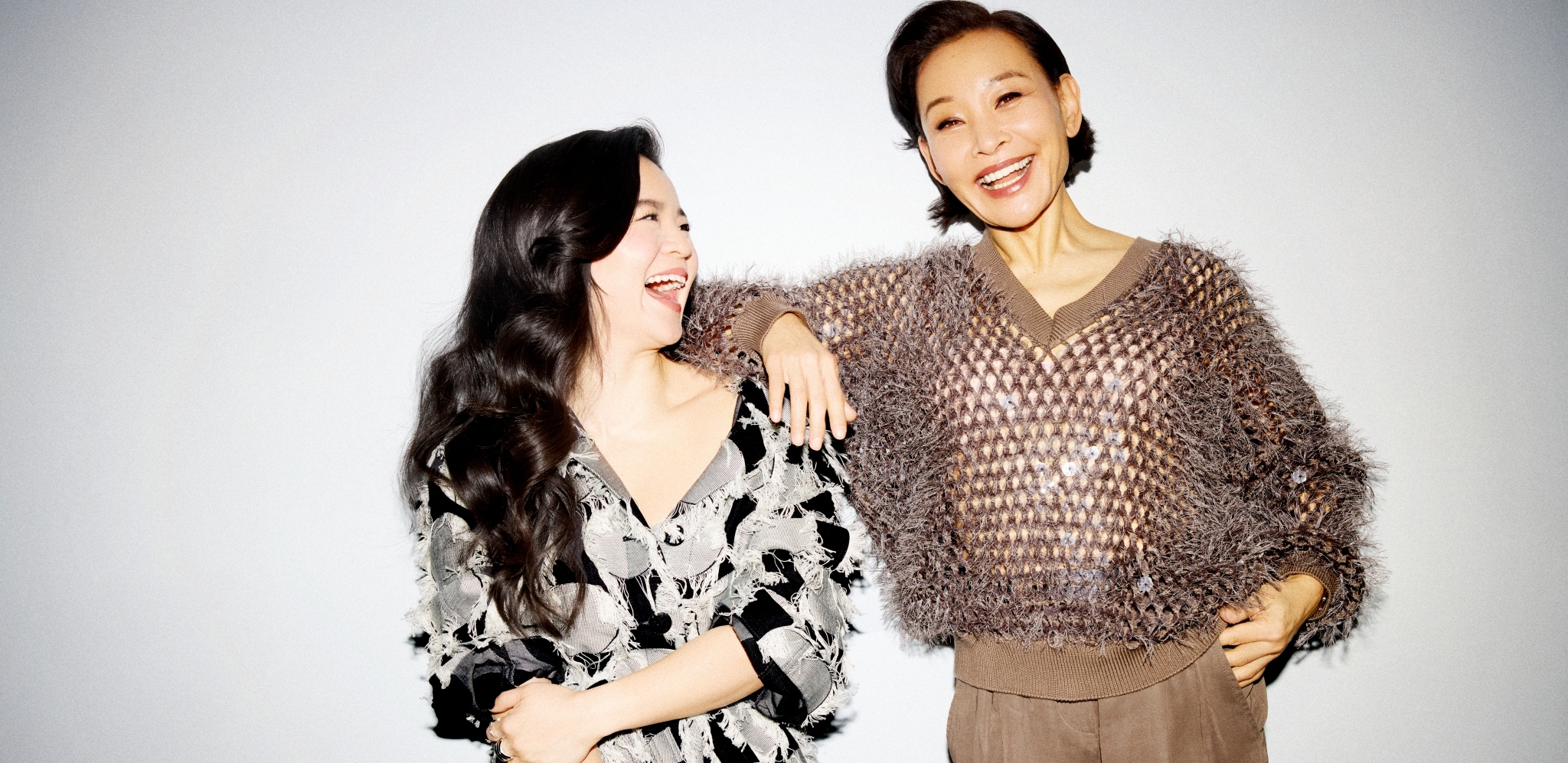

We sat down with the screen mother and daughter to discuss coming out at a later age, acting alongside Youn Yuh-Jung in The Wedding Banquet, and why they’re thinking of taking up sponsorship from Haribo.
Joan Chen and Kelly Marie Tran were celebrating last night. Twelve hours before our interview at London’s Sea Containers hotel, their new film The Wedding Banquet had opened BFI Flare, the UK’s biggest queer film festival, and it went down a storm. “Did you party late last night?!” Chen asks her co-star, dressed with casual elegance in a fuzzy sequin sweater and sipping on an extra large grapefruit juice. “I woke up at five. I tried to go back to sleep, and by the time I drifted away my alarm was going off.”
When Chen, an unassailable legend of both Chinese and American cinema, had walked through the door moments earlier the entire room, including myself, did what is only proper when greeting royalty: we stood at attention. Tran—who had been working the room with effortless charisma—on the other hand, seemed the least bit thrown by Chen’s icon status, instead rushing to embrace her co-star with a warm hug. Chen is her on-screen mother, after all.
Celebration is a good word to describe The Wedding Banquet, not only because of its opening scene—which sees Chen’s character on stage playfully twerking on someone wearing a traditional Chinese lion costume (“I was freestyling!” she laughs)—but because of the obvious riot being had by its fabulous ensemble cast, which features Tran, Chen, Lily Gladstone, Bowen Yang, Han Gi-chan and Korean screen icon Youn Yuh-jung.
A modern remake of the groundbreaking queer rom-com directed by Ang Lee, this Seattle-set version of the The Wedding Banquet story follows two queer couples—Angela (Tran) and Lee (Gladstone), and Chris (Yang) and Min (Gi-chan)—who must stage a hetero wedding between Angela and Min when the latter’s grandmother (Yuh-jung), oblivious to his sexuality, pays them an impromptu visit from South Korea. Chen plays May, Angela’s jubilant mother, who, after initially rejecting her sexuality, has come to accept her for who she is, even going so far as to become a prominent member of their local PFLAG (Parents and Friends of Lesbians and Gays) community. But her allyship, though rooted in good intentions, is self-centered and performative, leading to further friction with her daughter.
For Tran, The Wedding Banquet is part of a larger canvas she’s been painting since her debut as Rose Tico in 2017’s The Last Jedi. The film saw the actress make history as the first Asian-American to feature as a major character in the billion dollar Star Wars franchise, but consequently suffer through a barrage of racist and sexist online bullying by its notoriously toxic fandom. The experience was initially a massive blow to Tran’s confidence, but ultimately pushed her to embrace her identity with renewed fearlessness. In 2025, she has already starred in three projects—Forge, The Control Freak and, of course, The Wedding Banquet: stories with smaller budgets, big hearts, and helmed exclusively by Asian-American filmmakers. “I’m trying to work on things that celebrate the parts of my identity that that experience made me feel like I should be ashamed of,” she says.
During an interview with Vanity Fair In 2024 discussing her then-upcoming role in The Wedding Banquet, Tran publicly came out as queer, though she tells me she tried not to overthink her portrayal of ‘queerness’ in the film, preferring instead to let it flow out of her naturally. “All of that was already inside of me,” she says. “Waiting to come out.”
There’s serendipity at play for Chen, too. Unbeknownst to Ahn during the casting process, the actress and filmmaker was in talks to star as May Chin’s character Gu Wei-Wei in the original The Wedding Banquet, but had to decline due to conflicting schedules. “It’s something she told me much later,” Ahn says, when I ask him about Chen’s casting. “It felt like fate that she would get the opportunity with our film. Maybe she didn’t get to play the bride, but years later she’s able to play the bride’s mother.”
Despite missing out on starring in Ang’s original film, Chen is no stranger to the queer Asian-American rom-com, having previously starred in Alice Wu’s Saving Face, a queer cult classic in its own right. Like The Wedding Banquet (2025), Saving Face is as much a story about parents and children as it is about queer love, and it’s no coincidence that both movies feature Chen as a mother trying to find common ground with her queer daughter.
But then, motherhood has been at the heart of a lot of Chen’s work of late. Only last year she played a first gen immigrant mother struggling to connect with her second-gen Chinese-American children in Sean Wang’s Didi. “My children’s teen years were extremely tumultuous and very challenging for them and for me,” she says. “[Making Didi] I felt a sense of catharsis as well as redemption in that regard. My younger daughter was with us helping out on the crew. It was summer vacation for her. Every look that I give to Isaak’s character in that film is really what I wanted to say to her.”
The screen mother and daughter sat down with A Rabbit’s Foot to discuss coming out at a later age, acting alongside Youn Yuh-Jung in The Wedding Banquet, and why they’re thinking of taking up sponsorship from Haribo.
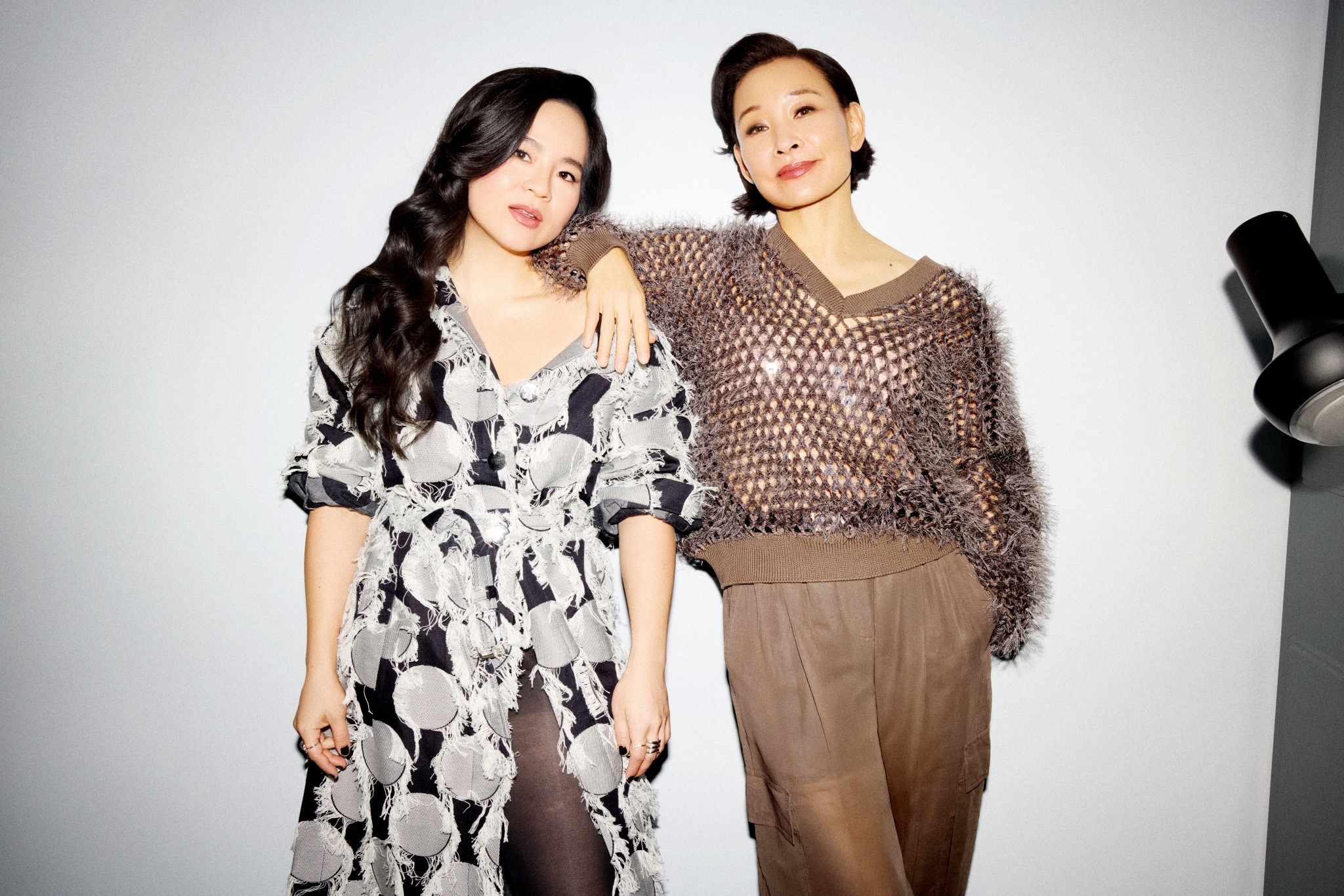
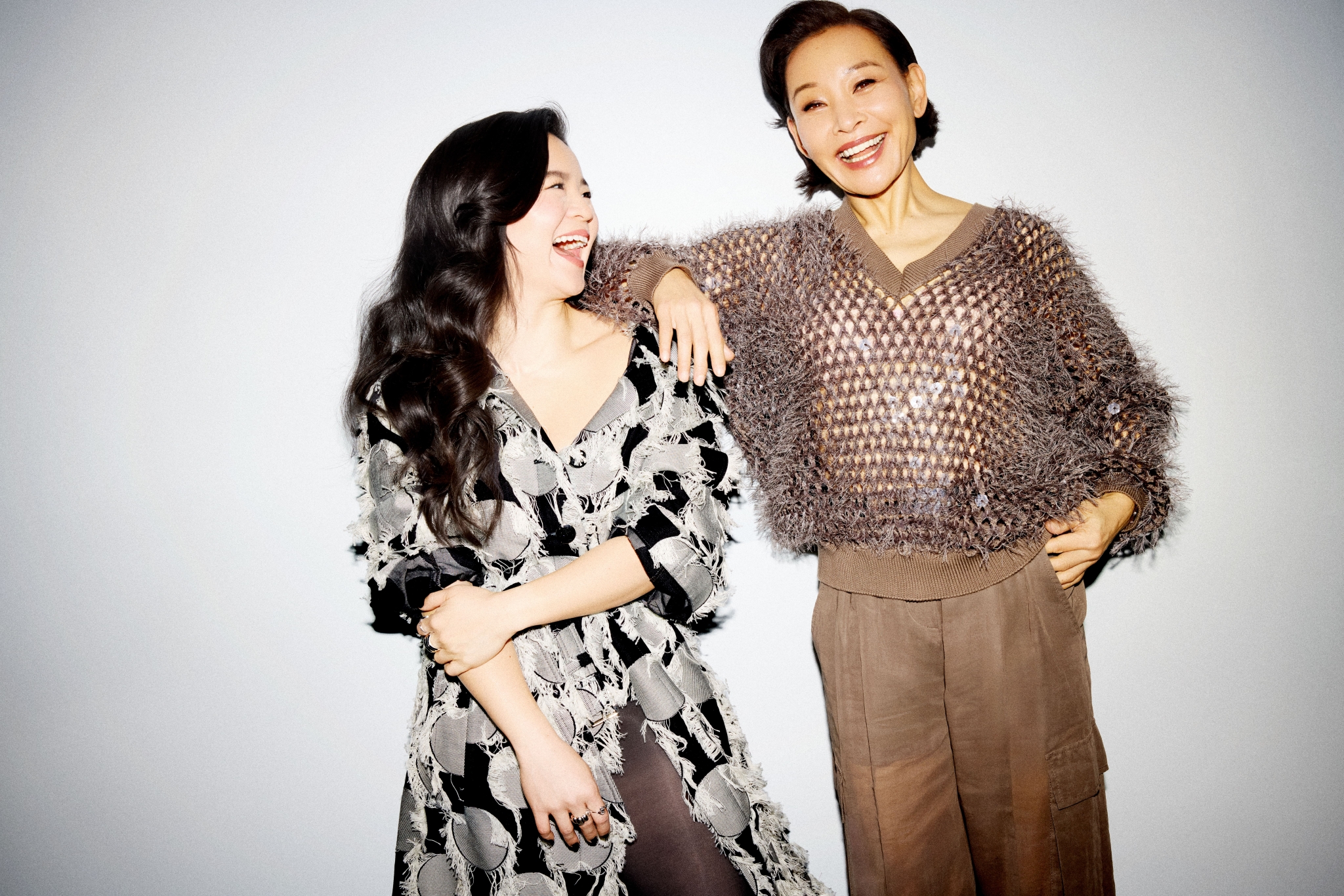
Luke Georgiades: I couldn’t stop thinking about Saving Face while I was watching the film. Joan, I wonder if what you saw in Alice back then is similar to what you see in Andrew Ahn and this film?
JC: With Alice we met and we became friends first. She told me all about her life—how she came out to her mom, who didn’t speak to her for two years after that. Alice’s mom was a single mom, so they were very close growing up, and that estrangement was heartbreaking for her. Then her mom fell in love, just like in Saving Face, and that prompted her to reach back out to Alice. She felt, all of a sudden, that she was the child. She didn’t fall in love until she was that age, and suddenly it was her that was in search of guidance from her own child. That’s when Alice wrote the script. She wrote the script for them. It was so very personal. . We’ve been friends ever since. With Andrew, he’s already made movies to prove himself. He’s a great filmmaker. So when I saw that it was a great script, it was simple. I had a zoom call with Andrew, thinking “ok, I have to convince him to give me the part.” [laughs].
LG: I think with Queer cinema the stories often are personal for the filmmakers making them. As Andrew’s actors, you carry the responsibility of that vision. What were your conversations like with him regarding your roles and the kind of story he was hoping to tell here?
JC: [Turns to Tran] Did he know at the time?
Kelly Marie Tran: No one knew I was queer. I didn’t tell him when I sent in my tape. I had this intense 45-minute callback, and my girlfriend has this habit of, no matter what call I’m on, walking through the background completely oblivious. Later on, Andrew told me that he was thinking, “I…I think Kelly’s gay” [laughs]. No one knew. I hadn’t spoken about my sexuality publicly at all then. I just auditioned as I would have, and he kind of figured it out.
I don’t know if we talked about portraying queerness in any specific way. All of that was already inside of me, waiting to come out. It was already inside of him.
JC: Well, that’s a nice story. And did the realisation come to you later on rather than your teen years?
KMT: Absolutely. I still have a lot of questions about my sexuality. I don’t know if I would even consider myself a lesbian. If the queer community could let me know the difference between bi and pansexual, that would be great [laughs] because there’s so much debate on the definitions. That’s why I just call myself queer—there’s no hard definition for who I am. I joined a coming out later in life support group a few years back, and I thought I would be the oldest one there in a room full of Gen-Z girls telling me how great it is to be gay, but I was the youngest one there. Everyone else was in their 40s, 50s and 60s. Some were married to men, some are still married to men, some had kids with men, and were finally acknowledging this part of them. There’s no question that we’re socialised to be straight from birth. I would have experiences with men and then would think, well, I never actually asked myself what I liked. It wasn’t until my first intimate moment with a woman that she asked me “what do you like?” and I was like, “what do you mean?” I never knew that I should ask that, because I was only socialised to think about sex as a means to pleasure men. So I don’t think this is a unique experience, maybe the media doesn’t talk about it that much, but in my life, there are plenty of women living like that.
LG: Joan, when you were talking to Andrew did he mention having any kind of personal attachment to the character you were going to be playing?
JC: We swapped life stories. We didn’t get into the script at all. I told him about my experiences as a mother, my own failures, and he talked a great deal about his mother. Afterwards, I sent him an email saying, “well, maybe if you want we could go over the script.” [Laughs] but we just didn’t. It’s not his autobiography, but it is so personal to him.
LG: You mentioned that being a mother influenced how you approached your role in Didi last year too. Have any of these characters changed how you approach motherhood in real life?
JC: My children’s teen years were extremely tumultuous and very challenging for them and for me. As an adult, I recognise my failures as a mother. For Didi, I felt a sense of catharsis as well as redemption in that regard. My younger daughter was with us helping out on the crew. It was summer vacation for her. Every look that I give to Isaak’s character in that film is really what I wanted to say to her. Later on, she realised that. She was looking at the monitor all Summer. If it wasn’t for the shooting of Didi, that wouldn’t have happened, she would have wanted to spend the summer with her friends.
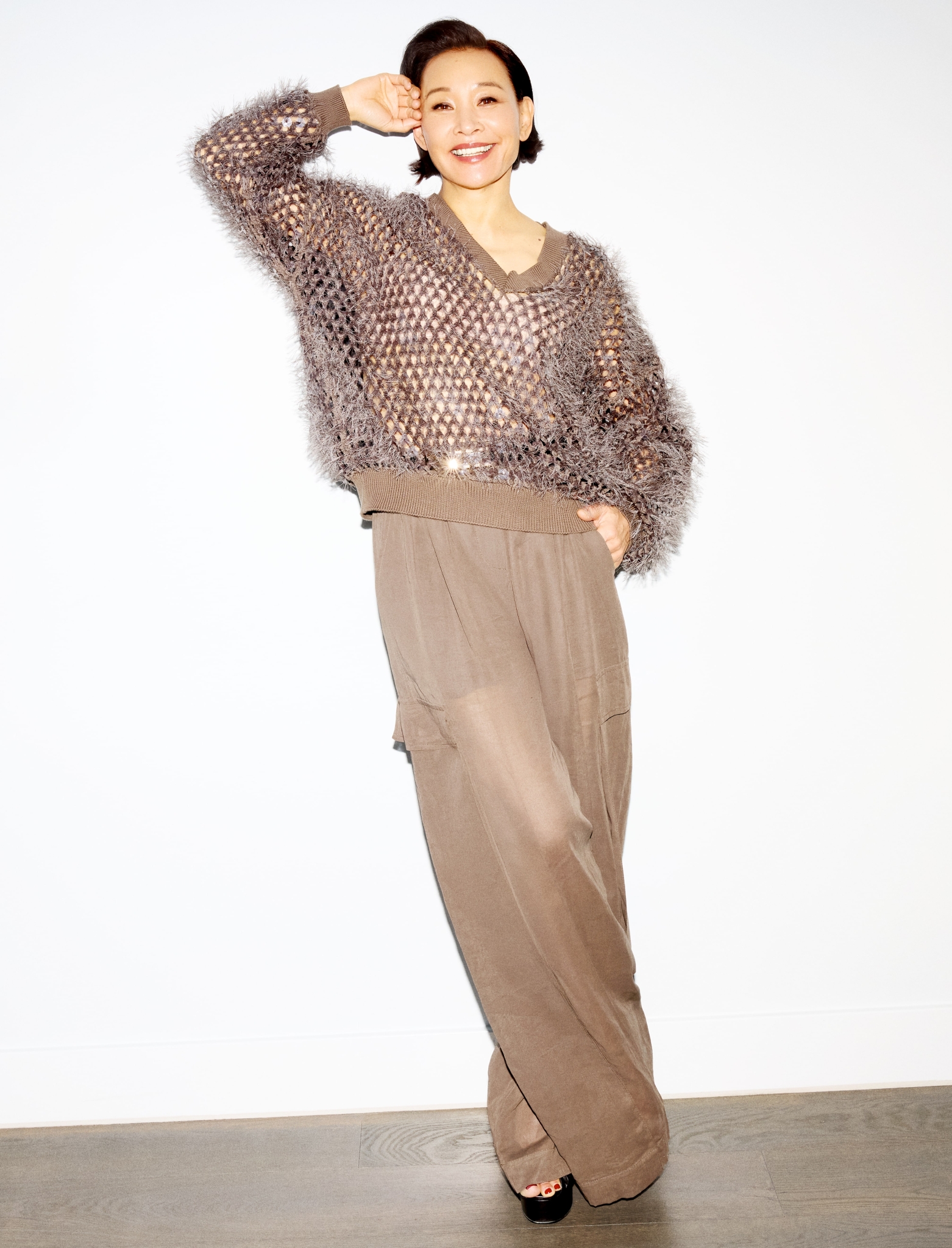
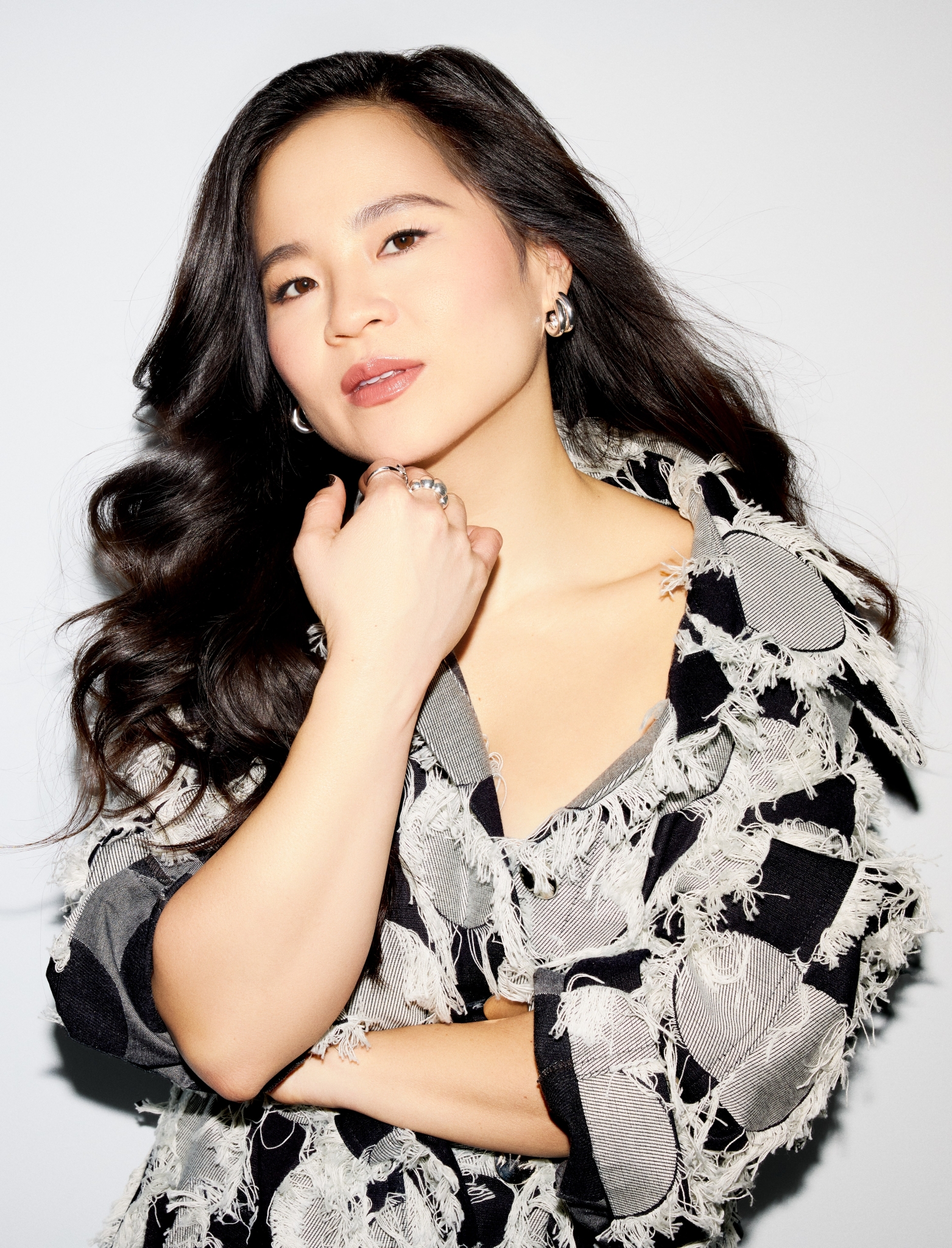
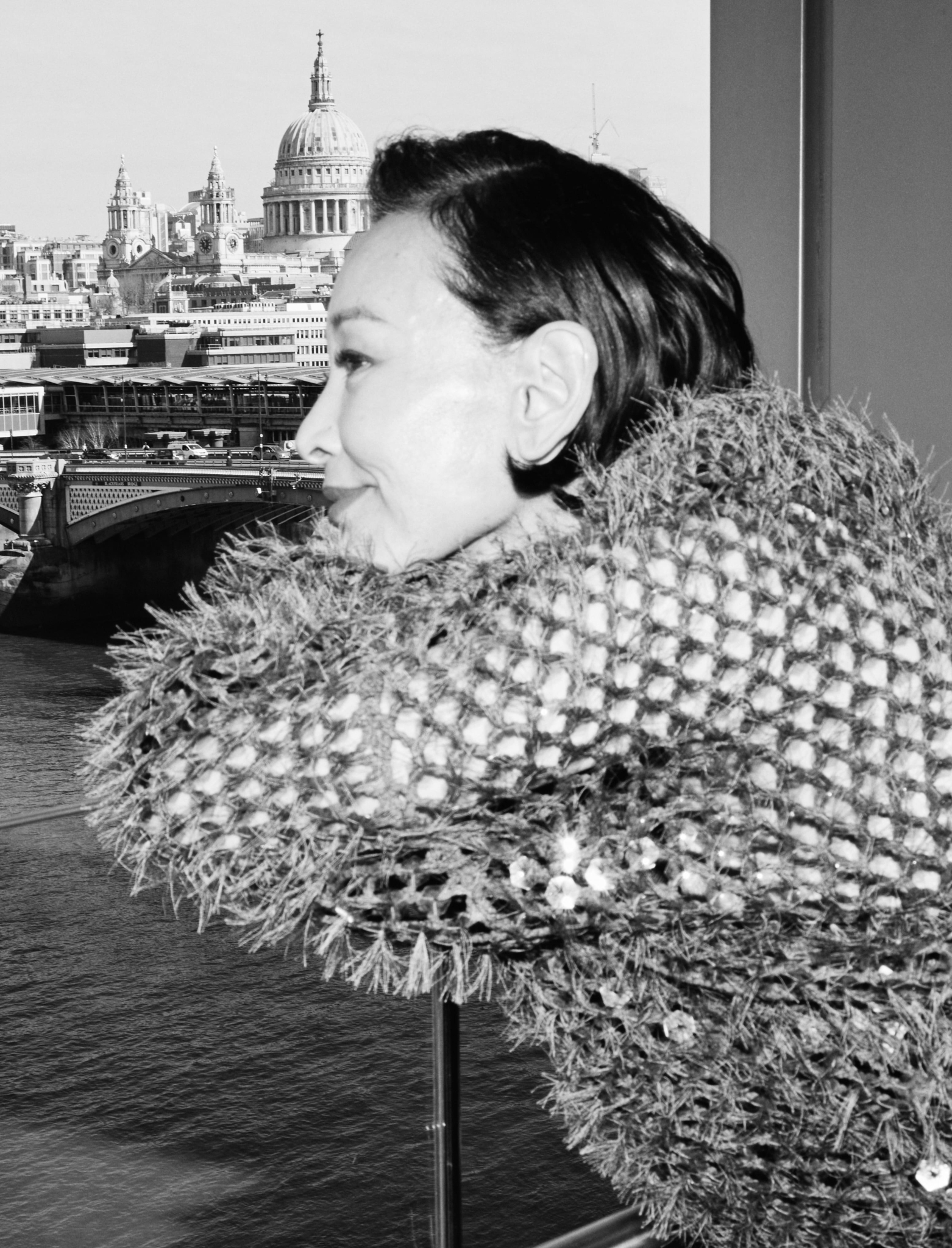
LG: One of my favourite moments in the movie is the bathroom scene between both your characters. How did you two go about working out the kinks of that scene?
JC: It flowed out of us. Kelly is a very transparent and generous actress. There was that sense of vulnerability, because there was so much resentment that her character had for mine, but there are moments in life where you become a child again, and all you want is your mom. There were little moments that my children would have that, where I know they’re not in the best place, but at the same time I’m allowed to be a mother again. I cherish those moments. That’s one of my favourite scenes.
KMT: I agree. I remember Andrew asking me where I would sit during that moment, and he was like, maybe you’d sit at the edge of the bathtub? And I was like, absolutely not [laughs] I would be fetal. I remember in the moment thinking, this is my worst fear in life: the idea that now the person I’ve had the most resentment for, who I also love, I’m going to become. I have that with my own mother. It’s a very inter-generational conversation. I love my mom, she did the best she could, but it’s complicated. What happens when you turn into her? So it all came naturally. Joan was a dream. We didn’t have many conversations about the scene.
LG: Kelly, you’ve had three movies premiere in 2025 [The Wedding Banquet, Forge and The Control Freak] all collaborations with independent Asian American directors. How purposeful has it been to move into that direction?
KMT: I think it’s very purposeful. As an actor you have surprisingly little control over your career. Star Wars was my first thing. I was so young, I had no idea what was going on, I was from a family that didn’t think the arts were something you could do for a living. I was the first one in my family to go to college. My experience had already been this thing about searching for a path forward for myself—so after my experience with Star Wars, the best, most healing thing is that now I’m trying to work on things that celebrate the parts of my identity that that experience made me feel like I should be ashamed of. That, hopefully, will continue for the rest of my career. That’s the hope.
LG: Joan, how do you think the experience of being an actress has changed from when you were starting out?
JC: I’m a different generation. I came from China. I started working when I was fourteen, and I was just picked out of a crowd. Literally. They came over to my school and pointed at me and said, “maybe her.” I never really thought about it. “What? An actress?” It was the farthest thing from my imagination. I was pretty much a tomboy, and a little bit wild. But it happened, just like that. The happiest thing for me was that I no longer needed to go to school. I came from a very intellectual family background. They put in my head that this wasn’t going to be a lifetime career, but that it was a good opportunity because once I started acting I wouldn’t have to worry about being sent down to remote areas to work. A lot of my generation would have to leave home because of that. My family was happy that somehow, by luck, I didn’t have to do that. But they never believed that it was a profession. Once the Cultural revolution ended and University examinations started again, my career stopped for 10 years. My family said, ‘don’t act anymore, go review your scores and go to college.” So I did. There were numerous times where I thought, “okay, now’s the time to find a real job.” But somehow I always came back to acting. I didn’t know that I loved it. I did love it. I just never acknowledged it.
LG: Whoever pointed to you and said “that’s her”…
KMT: Genius.
LG: We owe that person everything.
JC: [Laughs].
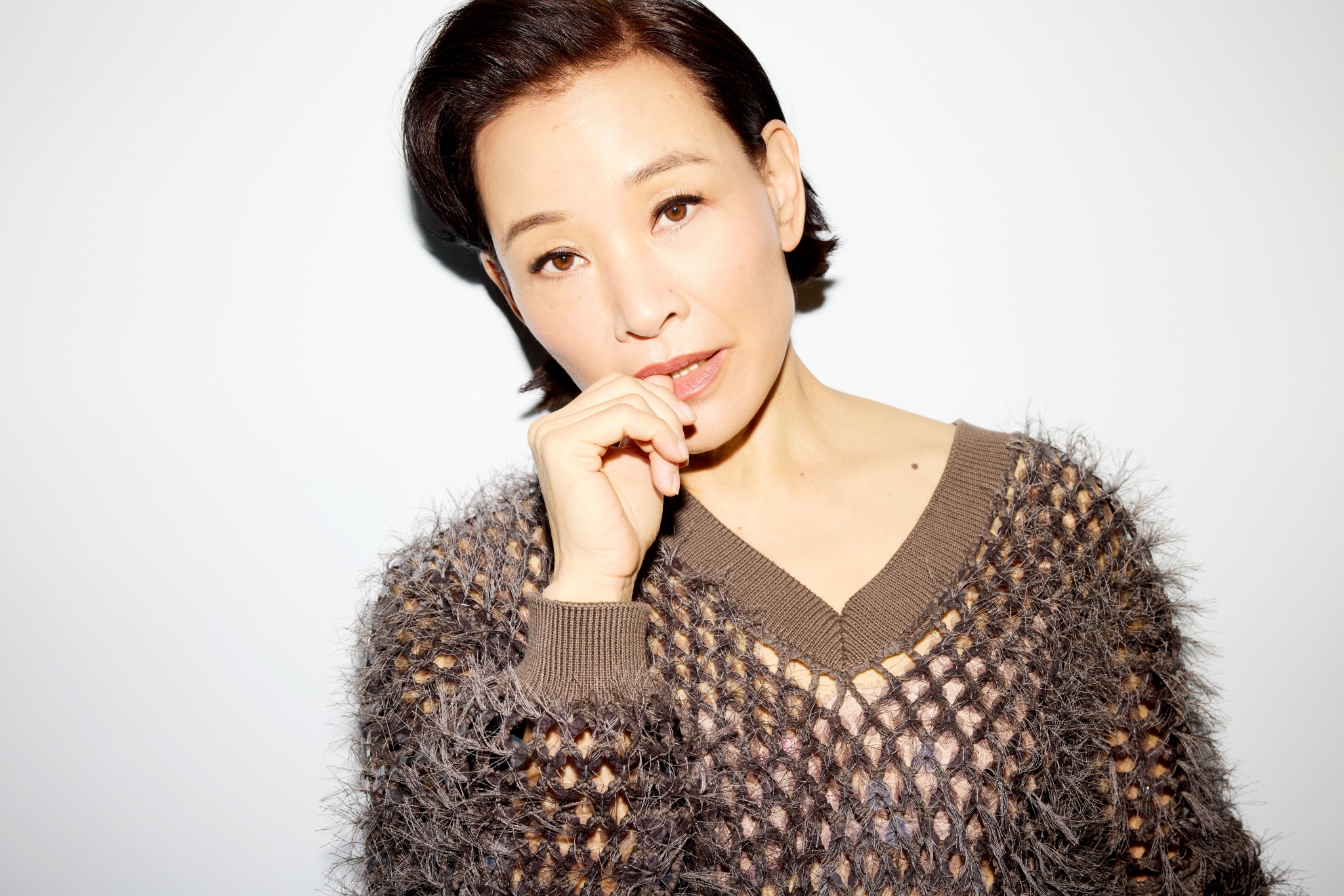
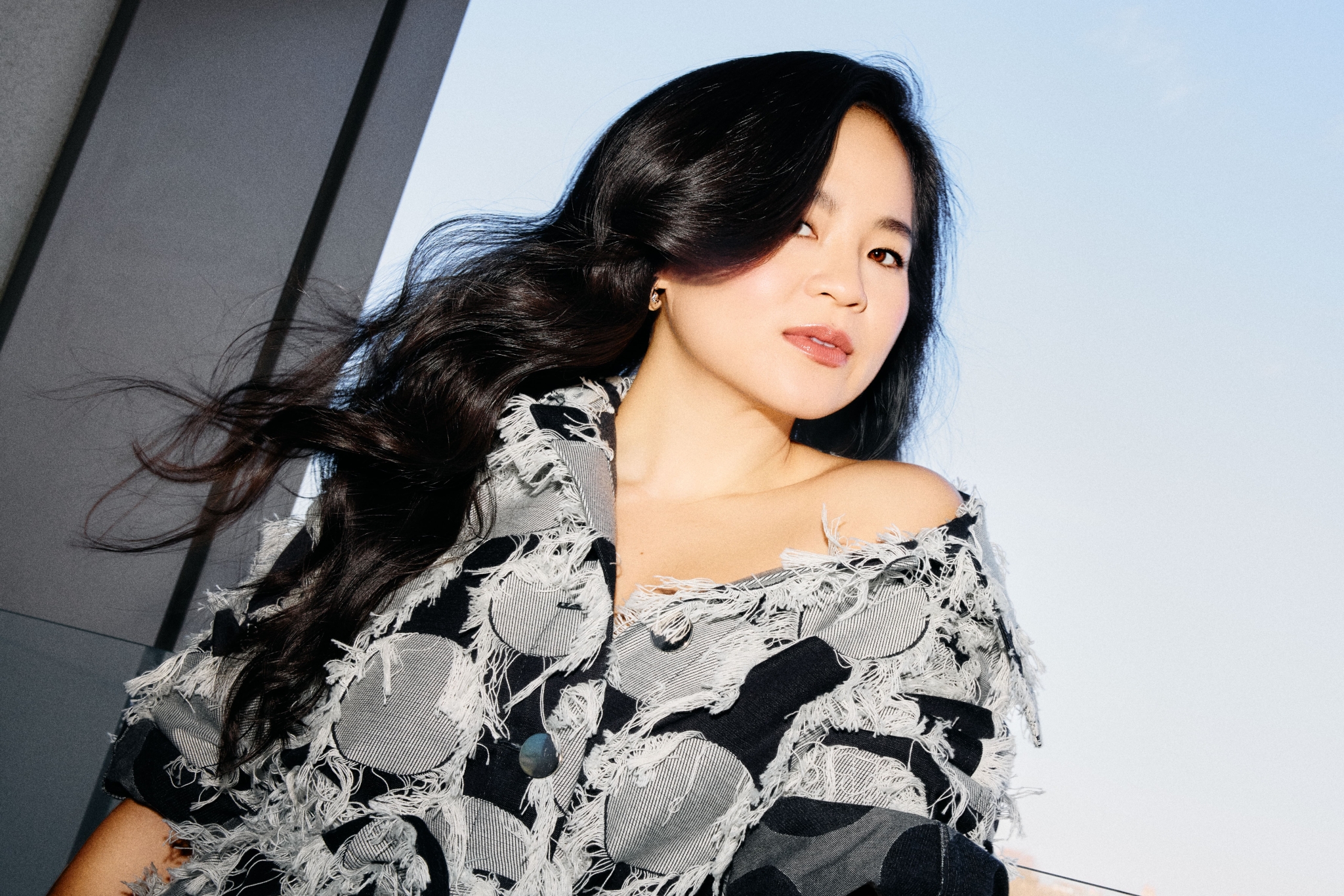
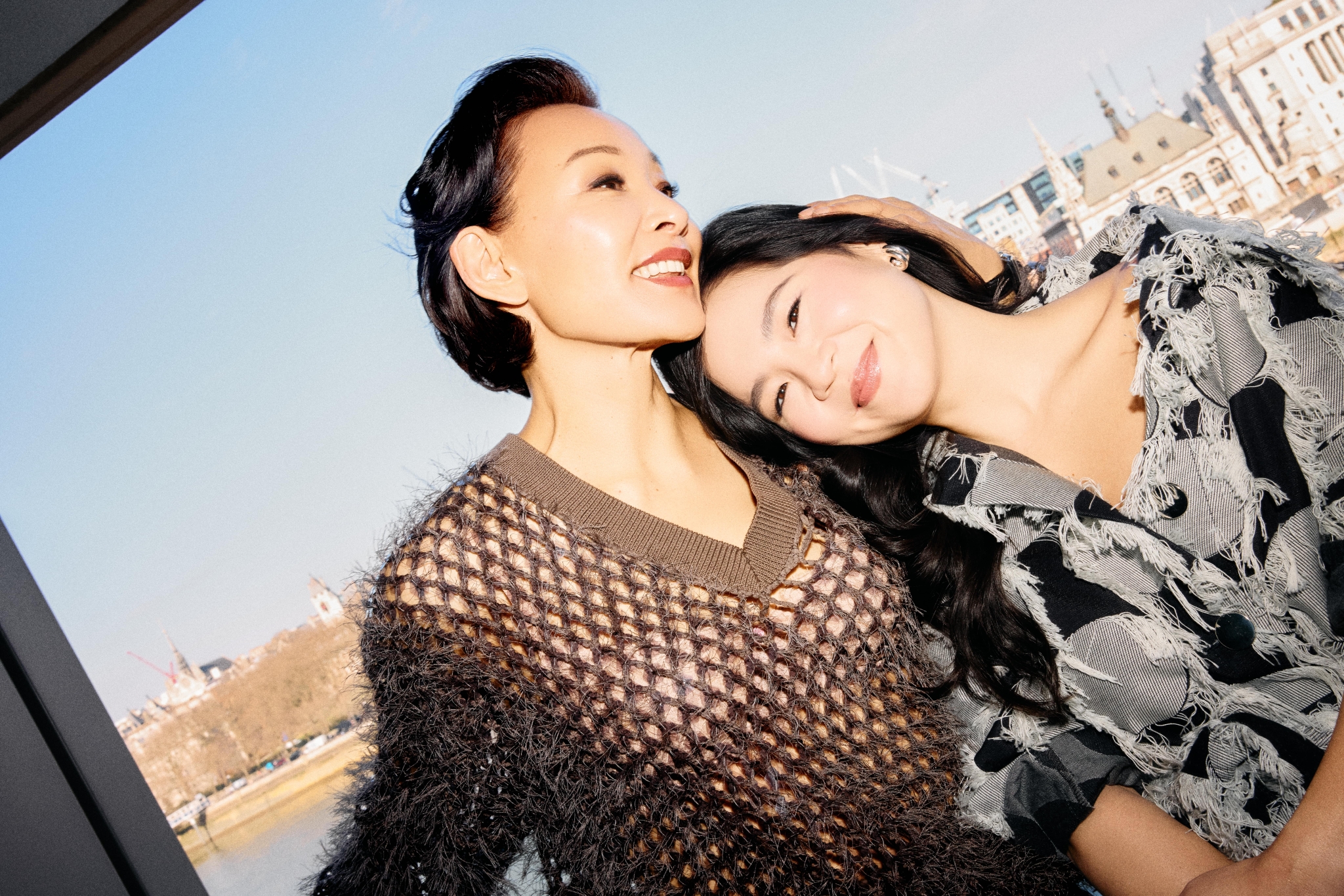
LG: I want to ask about the dynamic between the entire ensemble here. It seems like you’re having so much fun, like you were all living in some sort of university commune together.
JC: [Laughs] Four of them were!
KMT: [Laughs nervously].
JC: [Looks at Tran].
KMT: [Looks at Chen].
LG: …
Chen & Tran: [Laughs]
LG: Why do I feel like there are things you can’t say right now?
JC: I’m so much of a parent that when I was with the kids there was always a feeling that they were doing or saying something to exclude me. Not in a negative way, but a certain type of illicit fun that they would not want me to be a part of, naturally. I mean, my own children wouldn’t. But they denied the story. They denied it. Have you heard the story?
LG: I’m all ears!
JC: We were shooting the wedding scenes. I saw this person, who takes care of the cast and would bring up snacks and drinks, walk into the room with a bowl of gummy bears. I said, “oh! Great, let me have one.” And he said, “Oh, no, no, Joan..this is not for you.” And then he turned and walked to their direction, and then laughter and giggling and all of that started. Hmm. There was something about that gummy bear….but they deny it.
LG: Kelly?
KMT: Well! They were absolutely Haribo gummies, and that’s all they were, no weed…
JC: [Laughs]
KMT: But we were laughing a lot! That was the vibe on set.
JC: There was a lot of giggling after you ate the gummy bears…
KMT: They put you and YJ [Youn Yuh-jung] in your own rooms, but the rest of us were sharing. So we were always talking shit and eating junk food. Towards the end of the shoot we would be watching Couples Therapy between takes, popping popcorn in the microwave, it was like a sleepover.
JC: So, my story has been denied? It’s not true. There is no such thing as gummy bears on set. That’s the official story.
KMT: If we keep telling this story, we’re going to need sponsorship.
LG: What was it like working with Youn Yuh-jung?
JC: I came to really like her. She has a very dry sense of humour. She’ll give you a couple of words, and then much afterwards you’ll realise that what she said was really funny. What did Andrew always say?
KMT: “Lovely.”
JC: Yes, he would always say “Lovely” after each take. “Looovely, lovely. Ok…now do another take.” She was the first one to mimic him, and say, “lovely” in her own way. It just cracked me up. And obviously, we would have to do it again. She’s such a great actress. So quiet, yet so powerful. There’s so much gravitas inside her.
LG: I wonder if you were thinking about how this film would fit into the Queer cinema canon. How did you feel about the prospect of contributing to that ongoing legacy?
KMT: A lot of the relationship between Angela and May, in terms of the complicated reception of Angela’s coming out, was very similar to my real life. My mom isn’t an activist in any way [laughs] she’s not as glamorous as you are, Joan. But it made me think a lot. It’s such a privilege to be an actor, but it’s rare for everything to align so perfectly that you’re able to draw so heavily from your most intimate of personal experiences. When that does happen, it’s such an incredible gift. I think that I just wanted to do that role justice. We’re still lacking in both asian and queer representation. It was all happening at once. So, I did and do think about that a lot. I’d like to think about it less [laughs]
JC: Before we do the photoshoot, I need to drink some more juice…





